Penis Augmentation in Germany
Search and Compare the Best Clinics and Doctors at the Lowest Prices for Penis Augmentation in Germany
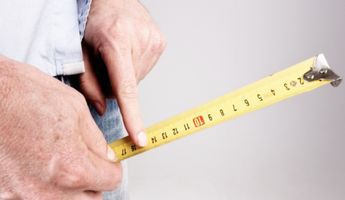
Find the best clinics for Penis Augmentation in Germany
No clinics available
Egypt offers the best prices Worldwide
Price: $ 500

- Home
- Germany
Compare Before & After Photos of _procedure_photos.phpPenis Augmentation

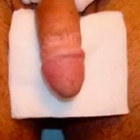
Front view
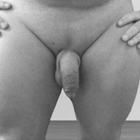

Front view
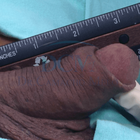
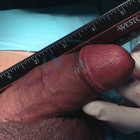
Half-side view

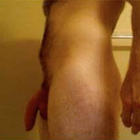
Full-side view
WHY US?
At Medijump, we're making medical easy. You can search, compare, discuss, and book your medical all in one place. We open the door to the best medical providers worldwide, saving you time and energy along the way, and it's all for FREE, no hidden fees, and no price markups guaranteed. So what are you waiting for?

Free

Best Price

Widest Selection

Risk-Free
What you need to know about Penis Augmentation in Germany
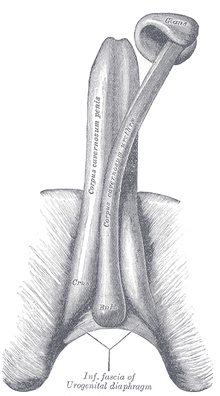
Also known as a Penis Enlargement, Penis Enhancement, Phalloplasty or the Penoplasty and involves any technique aimed to increase the size of the penis, where some procedures aim to increase total length, others may increase the shaft's girth. The Penile Implant is an alternative technique that is more common among those with erectile dysfunction. The procedure is performed under general anesthetic and can be completed in 45-60 minutes.
The most common procedure involves lengthening the flaccid penis by releasing the muscle at the Mons Pubis, but there is also the option for a fat transfer, which combined with liposuction, is particularly useful for increasing the girth. Note that these procedures aide in increasing the length of the flaccid penis only, the erect length remains the same.
To increase the length of the erect penis, a form of penile disassembly is required, where the head is detached and the extra tissue is grafted into the shaft - this technique takes longer and is more expensive. All techniques require two nights of hospitalization and a recovery time of 10-14 days in Germany.
What is the cost of Penis Augmentation in Germany?
The expense related to the Penis Augmentation in Germany can differ based on many factors. These encompass the particular details of the operation, the competency of the medical professional, and the amenities provided by the selected healthcare center.
Although being mindful about cost is logical, it's vital not to sacrifice the standard of treatment. A credible healthcare institution will be clear about the expenses, offering you an itemized elucidation. Additionally, it's beneficial to explore if your medical insurance provides any coverage for the operation or related care.
What does a Penis Augmentation Procedure Involve?
Before proceeding with the surgery, you will have an extensive consultation with your surgeon to determine whether the procedure is suitable for you. You will discuss your expectations and it is important to be realistic to avoid disappointment. You should also inform your surgeon about the reasons why you want to undergo the surgery. Your surgeon will get you to do a physical examination to find out if you have any medical conditions and to help your surgeon evaluate the best treatment option for your specific case.
During the surgery you will be given general anesthesia, meaning you will be asleep and will not feel anything. The most common types of penis augmentation surgery are:
- Penis girth surgery is aimed to increase the thickness of your penis in a flaccid and erect state. Your surgeon will perform a small liposuction procedure to harvest fat from the abdomen, thigh, or buttock. The fat is then purified with a system to improve the quality of the fat. The last step is distributing the fat along the shaft of the penis to thicken it. Some studies claim an increase in girth of around 1.4 cm to 4 cm.
- Penis length surgery can give the flaccid penis an average of 2 cm, but it cannot change the size of the erect penis. During the surgery, your surgeon will cut the ligament where the penis is attached to the pubic bone. Then, your surgeon will perform a skin graft at the base of the penis to allow for extra length.
-
Liposuction is a surgical procedure to remove fat from below the abdomen which can reveal up to 2 cm of the penis that had previously been buried. By removing excess fat around the pubic area, a partly buried penis can appear more prominent. This procedure works well with men who have a large tummy. However, if the man puts on weight again, the fat will return to the pubic area and may bury the penis again.
-
Penuma is a device inserted under your penis skin to make it longer and wider. It is crescent-shaped and made of medical-grade silicone. It comes in three sizes: large, extra-large, and extra-extra-large. It will be designed to fit your penis shape. Your surgeon will make an incision in your groin area just above the base of your penis to insert the Penuma. The device will stretch the penis skin and tissues to make your penis look and feel larger. If you are not already circumcised, you will need to do it before the procedure.
How Long Should I Stay in Germany for a Penis Augmentation Procedure?
In general, it takes around 45 minutes to an hour to complete a penis augmentation. You may go back to your hotel on the same day of the surgery after the effects of the anesthesia wears off. However, there are some cases where the patient will require a two nights stay at the hospital.
Plan to stay in Germany for at least 10 to 14 days. During your stay, it will allow for the initial recovery and you will attend follow-up checkups.
What's the Recovery Time for Penis Augmentation Procedures in Germany?
You will need to take some time off work after this surgery, normally one week if your job does not involve any physically demanding activity. If your job involves a lot of moving around, you can go back within 2 weeks.
Avoid any strenuous activity, including exercise for around six weeks. Do not have any sexual intercourse or masturbation for around four weeks. It may take around three to six months before you will see the completed result.
What sort of Aftercare is Required for Penis Augmentation Procedures in Germany?
Your surgeon will give you a set of instructions about post-operative care and you will need to follow the instructions. Pain and soreness following the surgery are normal and your surgeon will give you painkillers to control the pain. A surgical dressing will cover your penis, which will need changing at intervals.
You will need to keep the area clean, but avoid getting water on the area. Use a flannel or a sponge to clean the area. Your surgeon may ask you to massage your penis on a daily basis to prevent lumps from forming on the surface and to stop it from becoming lop-sided. Avoid heavy lifting and other strenuous activity and wait for a month before you resume any sexual activities.
What's the Success Rate of Penis Augmentation Procedures in Germany?
The success rate is high and the procedure can give the patient a significant confidence boost. Patients often cite the improvement of premature ejaculation (sexual stamina) and increased libido. Feeling and sensitivity are not affected and the patient is still able to ejaculate as normal, therefore the chances of conceiving are not impacted. A study found that 81% of patients who had Penuma rated their results high or very high.
For an animated display of how the penis augmentation procedure works with before and after images, watch this short video.
Are there Alternatives to Penis Augmentation Procedures in Germany?
The penile implant is an alternative technique, but it is more common among those with erectile dysfunction. Non-surgical alternatives to this surgery are pills, lotions, vacuum devices, penile extenders, and jelqing (stretching techniques). However, no study confirms the success of those procedures.
What Should You Expect Before and After the Procedure
Familiarizing yourself with the anticipation of the Penis Augmentation can substantially decrease stress and better equip you physically and emotionally. Before the process, you'll undertake an in-depth conversation with your medical expert, discussing the procedure, potential hazards, and projected results. They will mentor you on the essential preparatory steps, which might encompass advice on nutrition and lifestyle patterns. It's crucial to abide by these guidelines to set the best possible environment for a triumphant procedure and speedy recovery.
After the Penis Augmentation, it's ordinary to feel some level of discomfort, inflammation, or bruises, which are expected after-surgery responses and part of the natural recovery course. Your medicinal specialist will hand over comprehensive after-surgery care instructions, including medicines timings, relaxation, proper diet, and sleep positions. Complying entirely with these instructions can encourage a speedy recovery and lessen possible complications.
What are Potential Risks of Penis Augmentation?
Nonetheless, there are still risks and complications that you will need to be aware of.
- For penis length surgery, the cut ligament may not provide the support it originally did, which could lead to less satisfactory erections. In addition, it can also cause pain during sex.
- For girth surgery, some patients may experience scarring, disfigurement, infection, and lumpiness.
- Other complications include implant coming apart, and blood cloth.
Whilst the information presented here has been accurately sourced and verified by a medical professional for its accuracy, it is still advised to consult with your doctor before pursuing a medical treatment at one of the listed medical providers
No Time?
Tell us what you're looking for and we'll reachout to the top clinics all at once
Enquire Now

Popular Procedures in Germany
Prices Start From $95

Prices Start From $556

Prices Start From $1,795

Prices Start From $1,000

Prices Start From $322

Prices Start From $275

Recommended Medical Centers in Germany for procedures similar to Penis Augmentation

- Interpreter services
- Translation service
- Religious facilities
- Medical records transfer
- Medical travel insurance
- Health insurance coordination
- TV in the room
- Safe in the room
- Phone in the room
- Private rooms for patients available

- Interpreter services
- Translation service
- Religious facilities
- Medical records transfer
- Medical travel insurance
- Health insurance coordination
- TV in the room
- Safe in the room
- Phone in the room
- Private rooms for patients available

- Interpreter services
- Translation service
- Religious facilities
- Medical records transfer
- Medical travel insurance
- Health insurance coordination
- TV in the room
- Safe in the room
- Phone in the room
- Private rooms for patients available

- Interpreter services
- Translation service
- Religious facilities
- Medical records transfer
- Medical travel insurance
- Health insurance coordination
- TV in the room
- Safe in the room
- Phone in the room
- Private rooms for patients available

- Interpreter services
- Translation service
- Religious facilities
- Medical records transfer
- Medical travel insurance
- Health insurance coordination
- TV in the room
- Safe in the room
- Phone in the room
- Private rooms for patients available

- Interpreter services
- Translation service
- Religious facilities
- Medical records transfer
- Medical travel insurance
- Health insurance coordination
- TV in the room
- Safe in the room
- Phone in the room
- Private rooms for patients available

- Interpreter services
- Translation service
- Religious facilities
- Medical records transfer
- Medical travel insurance
- Health insurance coordination
- TV in the room
- Safe in the room
- Phone in the room
- Private rooms for patients available

- Interpreter services
- Translation service
- Religious facilities
- Medical records transfer
- Medical travel insurance
- Health insurance coordination
- TV in the room
- Safe in the room
- Phone in the room
- Private rooms for patients available

- Interpreter services
- Translation service
- Religious facilities
- Medical records transfer
- Medical travel insurance
- Health insurance coordination
- TV in the room
- Safe in the room
- Phone in the room
- Private rooms for patients available

- Interpreter services
- Translation service
- Religious facilities
- Medical records transfer
- Medical travel insurance
- Health insurance coordination
- TV in the room
- Safe in the room
- Phone in the room
- Private rooms for patients available
Penis Augmentation in and around Germany
About Germany
Germany, a titan in Central Europe and a vital constituent of the European Union, enjoys the reputation of having the finest healthcare system across the continent. Medical tourists often choose Germany due to its unrivaled service quality over cost, with Penis Augmentation procedures being the most in-demand.
Prices here exhibit a significant hike when compared to the neighboring countries of Poland and Hungary. Germany, despite housing just two JCI accredited facilities, places considerable trust in its local accreditation bodies.
This includes institutions such as the German Institute for Standardisation, the Telemedicine for the Mobile Society (TEMOS), and the Cooperation for Quality and Transparency in Healthcare (KTQ-GmBH). The language barrier is virtually non-existent as the majority of the doctors and medical staff exhibit proficiency in English. Beyond the capital city of Berlin, Munich, Hamburg, and Frankfurt are popular delectations among medical tourists.
Popular Parts of Germany
Home to an approximate 83 million inhabitants, Germany stands tall as the second most populated nation in Europe. The country presents a fascinating blend of deep-rooted history and cutting-edge technology. Visitors can pay their respects at numerous WWII memorials and museums, bask in the allure of the country's picturesque natural landscapes, or surrender to the tantalizing array of culinary delights that Germany has to offer. Truly, Germany embraces diverse interests, ensuring every traveller finds something to cherish.
- Berlin is Germany’s capital city. It is a vibrant city with diverse sights to see. Visit the glass dome of The Reichstag, take a walk through Brandenburg Gate, be inspired by Berlin Cathedral, or wander around a UNESCO World Heritage Site: Museumsinsel (Museum Island).
- Munich is home to a beautiful historic city center, futuristic drives, and outdoor fun. For a historical tour, tourists can travel to the Church of St. Peter, the city’s oldest parish church dating back six centuries. For a car lover, visit the BMW Museum to learn more about the history of BMW cars and motorcycles. For outdoor activity, tourists can surf at the Eisbach wave on the Isar river.
- Hamburg provides refreshing sea air. The city was labeled as “the gateway to the world” because it is a center of international trade. As the city revolves around water, tourists should stroll around the harbor, lay around beside the Elbe, or sail on the Outer Alster lake.
- Frankfurt am Main is the financial and business hotspot of Germany. Although it is packed with skyscrapers, the city still offers amazing architecture, a piece of history, and even a large green space in the city forest.
- Hanover calls itself as the “EXPO City” because it hosts several of the biggest exhibition in the world. The city also boasts an astonishing blend of modern and ancient. There are a number of museums and galleries, a large zoo, and innovative street art for tourists to explore.
Weather and Climate in Germany
The four distinct seasons make Germany a year-round destination for tourists. The summer starts in June and ends in August. The average temperature is 24 °C, sometimes even as high as 30 °C. People tend to enjoy outdoor activities during this season. This is also the most popular time to visit and peak travel season, so prices can be higher than usual.
Autumn graces Germany in the months of September and October. During this time, the weather is comfortably warm, closely mirroring that of summer. However, by mid-November, a notable drop in temperatures can be expected. This period is particularly popular among tourists owing to the much-celebrated Oktoberfest.
Winter in Germany, which runs from December through February, can be chilling with temperatures dropping to as low as -10°C. Yet, the festive vibrancy brought on by the Christmas season often offsets the cold. Visitors planning a trip during winter must ensure to pack ample warm clothing for a comfortable experience.
Spring in Germany marks the delightful bloom of cherry blossoms and typically spans from March through May. The transition into this season often ushers in a rapid rise in temperatures, making it a beautiful and warm period to visit.
Getting around in Germany
Frankfurt Airport is the largest airport in Germany. The airport serves domestic flights as well as international flights. It connects the country with almost every country in the world. The airport is the hub for Condor and Lufthansa. It also serves budget airlines such as Ryanair, Euro wings, Wizz Air. Düsseldorf International Airport and Munich Airport also receive their shares of international flights.
Train, bus, and taxi are the best options to get to the city center from Frankfurt Airport. A trip by train usually costs 4.65 EUR and takes around 40 minutes. Train tickets need to be punched, otherwise, you can get a 50 EUR fine. The bus costs 4.35 EUR and takes around 30 minutes. Buses that take tourists to the city center are No. 61, 77, 72, 58, 62, N81 and N7. Taxis are not very cheap, it will cost around 25 EUR and will take approximately 20 to 30 minutes to the city center.
As the creator of the first highway system, Germany has some of the best public transportation in the world. The public transportation is integrated with one ticket that gives tourists access to buses, trams, U-Bahn trains, and S-Bahn trains. A one-way fare starts from 2.90 EUR. It is better to get a one-day unlimited pass for 7 EUR or three days for 17 EUR.
Train travel is very efficient and affordable. Germany rail system has both high-speed trains and regular trains. High-speed trains are very fast but much more expensive. It’s advised to book train tickets in advance. Buses are the most cost-effective way to get around Germany although it is not as efficient as the train. Buses here are comfortable with air-conditioning and rest stops.
Taxis in Germany are expensive. All taxis are metered and start with a base fare of around 3.70 EUR. There is no Uber in the country, but tourists can use the MyTaxi App. If you want to get around the city, the best way is to rent a bicycle. Most cities are equipped with well-marked bicycle lanes.
Tourist Visas in Germany
Germany extends a cordial welcome to citizens from numerous nations, offering them visa-free entry. This privilege applies to travelers from Australia, New Zealand, Canada, Israel, Japan, Poland, the United States, and Switzerland, who are invited to stay for up to 90 days without the need for a visa.
Moreover, as a member of the European Union (EU), Germany adheres to the policy of open borders with its fellow EU nations. Consequently, EU citizens can freely travel to and enter Germany without any requirement for a visa. This ease of movement provides an added advantage for those wishing to visit Germany, whether for business, leisure, or medical purposes.
Citizens of other countries need a Schengen Visa. The application for a Schengen Visa must be filed with the embassy of the country of your primary destination. It is best to always check the requirements for Germany Visa Application before applying.
Additional Information
- Local Currency: the local currency is the euro (EUR). 1 USD converts to 0.94 EUR.
- Money & Payments: ATMs are easily available across the country. The easiest way to obtain cash is to use an ATM linked to international networks. Credit cards are not widely accepted in Germany, so always make sure to carry some cash. Some hotels, shops, and restaurants will accept credit cards. Tipping 1 EUR to room cleaners or porters is common. Most people add 5% or 10% tip in restaurants and bars. Tourists can tip about 10% to taxi drivers.
- Local Language: The official language is German. It is nice to know a little German to show respect. Many Germans in major cities and tourist areas will know a little English.
- Local Culture and Religion: 57% of Germany’s population follows Christianity, making it the largest religion in the country. Islam is the second largest religion. Buddhism, Judaism, Hinduism are also practiced.
- Public Holidays: Germany celebrates Christian religious holidays. The country hosts several festivals such as Maibaumaufstellung every 1st May and Oktoberfest in October.
Popular Searches
- Plastic Surgery in Thailand
- Dental Implants in Thailand
- Hair Transplant in Thailand
- Breast Augmentation Thailand
- Gastric Sleeve in Thailand
- Gender Reassignment Surgery in Thailand
- Laser Hair Removal in Bangkok
- Botox in Bangkok
- Dermatology in Bangkok
- Breast Augmentation in Bangkok
- Coolsculpting in Bangkok
- Veneers in Turkey
- Hair Transplant in Turkey
- Rhinoplasty in Turkey
- Stem Cell Therapy in Mexico
- Rhinoplasty in Mexico
- Liposuction in Mexico
- Coolsculpting in Tijuana
- Rhinoplasty in Korea
- Scar Removal in Korea
- Gastric Sleeve in Turkey
- Bone Marrow Transplant in India
- Invisalign in Malaysia
- Plastic Surgery in the Dominican Republic
- Tummy Tuck in the Dominican Republic
- Plastic and Cosmetic Surgery in Poland
- Rhinoplasty in Poland
- Hair Implant in Poland
- Dental Implants in Poland
- IVF in Turkey